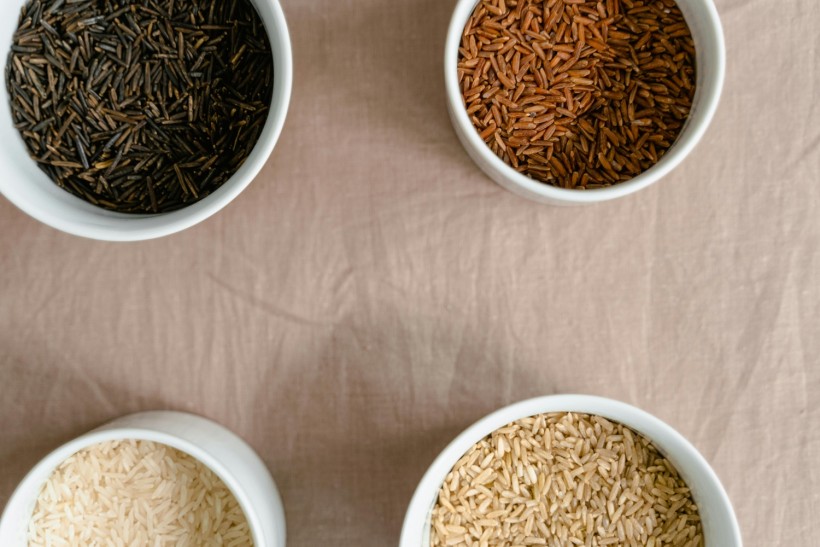Strict compliance with a nutritious diet is essential for one's well-being. When it comes to living a healthy life, there are many different things to consider. It involves making a knowledgeable choice about the type of rice you consume to keep your calorie intake consistent throughout the day, which is very important for an individual's diet. These rice varieties include both brown and white rice. But the question is, which of these rice is more nutritious?
Brown Rice vs. White Rice
 (Photo : Pexels/MART PRODUCTION)
(Photo : Pexels/MART PRODUCTION)

Rice is one of the most significant foods on the entire globe since it is responsible for about 20% of the calories consumed by human beings. It is a basic food for over 3.5 billion individuals worldwide, and they eat it regularly. As mentioned, farmers cultivate more than 100,000 varieties of rice, each of which comes in a rainbow of colors, to satisfy this demand. The good news is that, in most cases, the alternatives available during mealtimes are limited to two choices: brown or white.
Since they share a grain, brown and white rice are comparable. Grains vary in nutritional value according to processing. A harvested rice grain reportedly has bran, germ, and endosperm, while white rice has been processed to eliminate the bran and germ, which removes fiber and micronutrients from the grain, leaving starch. Thus, since brown rice has bran, germ, and endosperm, we classify it as a whole grain.
The bran and the germ are among the most nutrient-dense components within the grain. Ally Mast, a registered dietitian nutritionist, asserts that the bran and germ of brown rice are rich sources of fiber, vitamins, and minerals. In contrast to the stripped-down white rice, these components provide important nutrients not present elsewhere.
This additional fiber is beneficial for people with diabetes and those attempting to lose weight and provides additional nutrients. Mast states that the fiber can make you feel fuller for a longer period and will not cause a spike in blood sugar to the same extent as white rice. Minimizing significant fluctuations in blood sugar levels not only enhances insulin sensitivity and energy levels but may also reduce cravings.
On the other hand, as a result of white rice's comparatively low fiber content, its energy is more readily accessible, which can be a significant advantage for individuals who lead more active lifestyles or who are actively involved in sports. Kim Yawitz, RD, owner of Two Six Fitness, suggests it is an excellent option to consume after lengthy or strenuous workouts when you require carbs that break down more quickly to restore the glycogen stored in your muscles. Regarding digestion, the decreased fiber level makes it easier for people with digestive disorders to eat.
Read Also: Do Fast Foods Shorten the Lives of People? Health Risks Revealed
Is Brown Rice Healthier Than White Rice?
Although brown rice is an excellent way to increase your consumption of whole grains and is even referred to as a "nutrition powerhouse," that does not mean you should discard your bag of white rice. According to Catherine Perez, M.S., R.D., registered dietitian and owner of the Plant-Based R.D. blog, each variety of rice possesses distinct advantages.
She recommends selecting whatever you enjoy eating and ensuring that every component of your dish satisfies your objective regarding nutrition. In addition, the variety of rice used in a dish does not significantly impact nutritional value, as white rice is rarely consumed alone and contributes a substantial amount of nutrients that could be included in other components.
As per Healthline, the nutritional value of brown rice is typically higher than white rice. Since it is not artificially fortified with nutrients like white rice is, it has a higher concentration of fiber, magnesium, and other nutrients. As stated, consult a dietitian before incorporating rice into your weight loss regimen if you have any concerns about its suitability. They can discuss the potential impacts that it may have on any preexisting health concerns and provide guidance on how to incorporate it into your diet in a secure manner.
Related Article: Arsenic Rice: Should We Worry About It? [DETAILS]
To keep up with the latest news on trending recipes, food safety, and more, follow Food World News!





